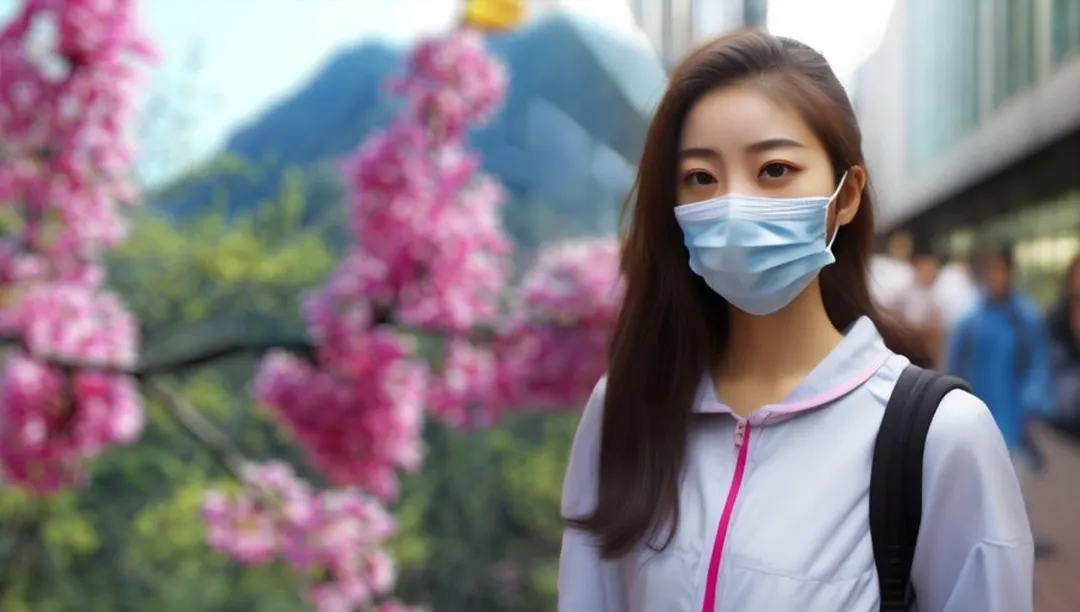How to Differentiate Between Allergies and Colds?
Symptoms of pollen allergies and colds share similarities, such as causing nasal congestion, sneezing, and more. Pollinosis presents like a cold. Besides a runny nose, sneezing, and nasal congestion, a cold may also come with a slight headache, sore throat, or fever. However, allergic symptoms like nasal itchiness, eye itchiness, swollen eyes, and ear itchiness are generally absent in colds. Therefore, “itchiness” is one of the good ways to differentiate between colds and pollinosis.
2025/01/22
“An unbearably itchy nose and eyes, constant tears, runny nose, cough, and sneezing, medication not working, restless day and night, refusing to go out...” Symptoms resemble those of a cold, and despite multiple attempts at medication, there is no improvement. Is it a cold or a pollen “attack”?
How to Differentiate Between Allergies and Colds?

Symptoms of pollen allergies and colds share similarities, such as causing nasal congestion, sneezing, and more. Pollinosis presents like a cold. Besides a runny nose, sneezing, and nasal congestion, a cold may also come with a slight headache, sore throat, or fever. However, allergic symptoms like nasal itchiness, eye itchiness, swollen eyes, and ear itchiness are generally absent in colds. Therefore, “itchiness” is one of the good ways to differentiate between colds and pollinosis.

If allergic symptoms are severe and not treated promptly, they can easily damage mucous membranes, skin, and organs, and may even trigger asthma and urticaria. In the case of laryngeal edema, there is a risk of asphyxiation, which can be life-threatening. Therefore, one should not endure pollen allergy symptoms but stay away from allergens as soon as possible and take medication promptly to alleviate symptoms early.
How to Prevent Allergic Diseases?
It is understood that anemophilous pollen is the main allergen for patients. Every spring, anemophilous pollen is mainly tree pollen. Common plants for pollen transmission include elm, poplar, willow, cypress, etc. Avoid contact with allergens. For example, don't go to places with a lot of pollen such as parks. If the flowers and plants at home are suspected of being allergenic, move them outdoors. Strengthen personal protection when going out. For example, carry a mask with you, wear long-sleeved clothes to avoid direct contact with allergens, and you can also take anti-allergy medicine orally before going out. After returning home from outdoors, wash your face with clean water to wash away the pollen and dust on your face, reducing the chance of getting sick. You can also rinse your nasal cavity with clean water or light salt water 2-3 times a day.
Some drugs that can improve immunity can be taken, such as Yu Ping Feng Oral Liquid. If you have a fever, please seek medical attention promptly. Yu Ping Feng Oral Liquid originates from “Yupingfeng Powder,” one of the classic prescriptions in traditional Chinese medicine. The prescription contains only three herbs: Radix Astragali, Rhizoma Atractylodis Macrocephalae, and Radix Saposhnikoviae, which replenishing qi, consolidating the exterior and arresting sweating, just like adding a safety barrier to the skin to resist pathogenic factors. Modern research shows that Yu Ping Feng can regulate body’s immune function, inhibit inflammatory factors, possess anti-allergic properties, regulate hormone levels, and exhibit antioxidant and anti-aging effects; it significantly regulates the immune function of patients with allergic rhinitis, allergic urticaria, and chronic urticaria.
undefined


